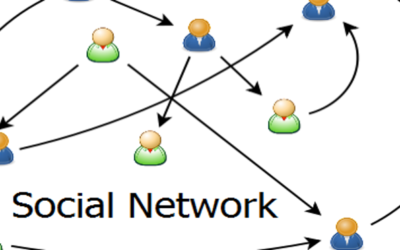Dementia Changes Relationships – It Doesn’t End Them.
Nicole Scheidl, Founder of Fit Minds
Individual Programming
Individual programming is the key to creating dementia care that is meaningful and engaging for individuals and their families.
Every individual has their own interests and abilities and that doesn’t change with a diagnosis of dementia. In fact, I would say that those unique traits hold the key to effective dementia care.
We may feel in our gut that a personalized and unique approach is the right way to engage with each person. And that gut feeling is backed up by scientific research.
Research suggests that individuals suffering from dementia find meaningful and engaging activities important in a number of key ways including:
- filling a void,
- maintaining social roles,
- enable positive expression,
- reduce frustrations, and
- enhance continuity of self-identity and feelings of connectedness.
Filling a void.
When an individual is suffering from dementia, self-motivation becomes extremely difficult. Individuals left to themselves will do nothing. Their day will become empty. This emptiness can lead to discouragement and depression. It becomes a downward spiral that is difficult to interrupt.
The apathy often expressed by individuals suffering from dementia can be a great source of sadness for family members. So the caregiver has a challenge: filling that space with meaningful interactions to reduce apathy. This can be difficult to do as often we are not sure how to start. But it is worth the effort and will bring rewards in the long run.
Our Fit Minds family program is designed to give you tools and resources so that you can do just that. [Sign up for free support emails]
Maintaining social roles.
When an individual is diagnosed with dementia roles shift. The leader and decision-maker in the family finds themselves diminished and shunted aside. But even though relationships are changing, you still want to maintain the relationships.
Often individuals find they are treated like children instead of adults. This is devastating to their feelings of self-worth. Meaningful and engaging activities encourages the individual to shine. This helps them maintain their societal and family role.
Even though an individual is having difficulty with memory or with expressing themselves, they still have a need to maintain their roles….particularly the role of an adult.
Enable positive expression.
It is important for every individual, whether suffering from dementia or not, to have an opportunity to positively express themselves. This can be in the form of creative arts, like music or painting, or through engaging in discussion with others.
Opportunities to express how you are feeling about events – both past and present – can help you form deep and lasting friendships with others. [See blog post: She Called Me By Name]
Giving the individuals you are working with this opportunity is a gift.
Reduce frustrations.
Dementia is frustrating.
Feeling the effects of dementia start to cloud your thinking and your ability to process information is stressful. Bringing meaningful and engaging activities to your day is an obvious way to reduce these frustrations.
We all need opportunities to express ourselves and to fill our days with positive interactions with others. This doesn’t change with a dementia diagnosis.
It reminds me of an email that was making the rounds in 2007. It was from Richard Taylor, the author of Alzheimer’s from the Inside Out. The email was a very compelling plea to treat him as a whole person and ended with this:
Hands up in the audience if you are trying to help me be all I can be for as long as I can be? Who wants to help enable me to be as much as I want, as much as I can , as much as I should be right now, and every tomorrow until the day I die?
In many ways, this is what we all want. To be all that we can be until the end of our days. And I really believe this attitude and approach is essential to good dementia care.
Every individual, wherever they are at on their life’s journey, remains the mother, father, sister, brother, spouse to their family members. For individuals who are challenged by dementia, this means creating a positive environment where they will continue to be all they can be.
[Check out our Fit Minds Program – Personal Trainer for the MInd]
Enhance self-identity and connectedness.
Continuing to maintain and grow relationships with family and friends is important for all of us. And for individuals with dementia, it has a great potential to promote his or her well-being. Meaningful activities create and support positive relationships.
We have seen this with our Fit Minds programming. Family members have reported being able to reconnect with their loved ones. Professional caregivers have seen a reduction in challenging behaviour.
Choosing activities that are meaningful to the individual based on past interests and capabilities reduces agitation. Family caregivers are not as stressed and will maintain more engagement with the outside world. This is good for everyone.
Fit Minds Cognitive Coach Certification Course
Learn how to deliver a cognitive stimulation therapy program that encourages engagement, interaction and supports an improved quality of life.
One of our first decisions at Fit Minds was that our programs would be delivered by human beings – not computers. So we are always looking for committed individuals to become certified and offer the Personal Trainer for the Mind program to those they care for.
At Fit Minds, we believe that each person is unique, with a unique personality and perspective that impacts their lives with dementia. That is why we create personalized programming.
Now, I don’t want to sound like I’m on a soapbox – but I believe passionately in this approach. Frankly, it’s a soapbox I’m happy to stand on.




0 Comments